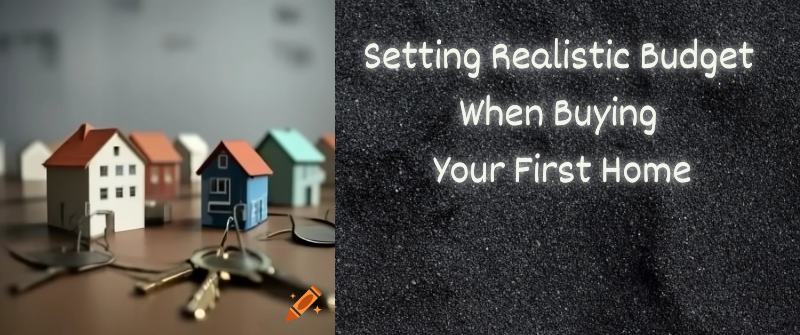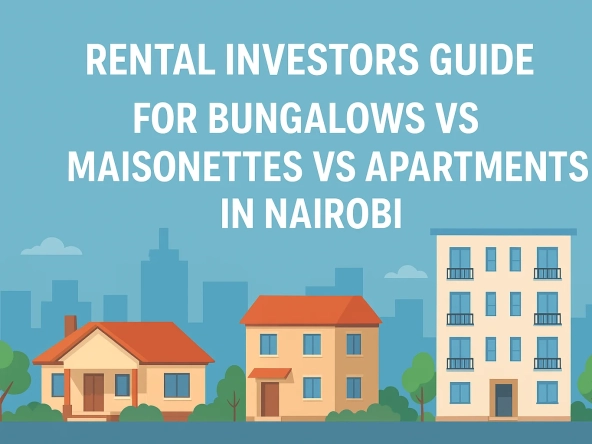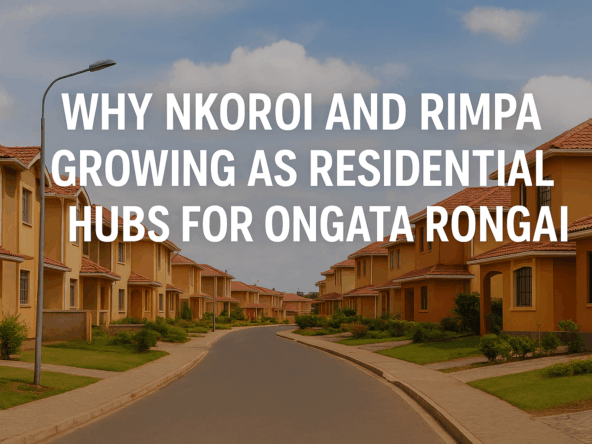Buying your first home is an exciting journey, but it’s crucial to establish a realistic budget before you start house hunting. Without a well-planned budget, you risk overspending, struggling with mortgage payments, or underestimating hidden costs.
This comprehensive guide will help you set a realistic budget for your first home and ensure that you make a financially sound decision.
1. Assess Your Financial Situation
Evaluate Your Income

Start by calculating your total monthly income, including your salary, bonuses, freelance work, and any other sources of revenue.
This will give you a clear picture of what you can afford to spend on housing without straining your finances.
Analyze Your Expenses
List all your monthly expenses, including:
- Rent or current housing costs
- Utilities
- Groceries
- Insurance (health, car, etc.)
- Debt payments (credit cards, student loans, auto loans, etc.)
- Entertainment and leisure expenses
- Savings and emergency fund contributions
This will help determine how much disposable income you have for homeownership.
Check Your Credit Score
A higher credit score can help you secure better mortgage rates. Check your credit report, correct any errors, and take steps to improve your score if necessary.
2. Determine How Much You Can Afford
Follow the 28/36 Rule
A common guideline is that your monthly mortgage payment should not exceed 28% of your gross monthly income, and your total debt (including mortgage, credit cards, and loans) should not exceed 36% of your gross income.
For example, if your monthly income is 90,000:
- Maximum mortgage payment: Ksh. 25,200 (28%)
- Maximum total debt payments: Ksh.32,40000 (36%)
NOTE: These percentages are for learning purposes. Therefore, Do Not rely on them. Kindly consult your financial advisor for accurate figures and advice.
Consider Your Down Payment
A higher down payment reduces your loan amount and monthly payments. Aim for at least 20% to avoid Private Mortgage Insurance (PMI), but if that’s not feasible, look into low-down-payment loan options.
Factor in Property Taxes and Insurance
Property taxes and homeowners insurance vary by location and can add hundreds of dollars to your monthly payments. Research these costs in your target area.
Don’t Forget Homeowners Association (HOA) Fees
If you’re buying a condo or a home in a managed community, check for HOA fees and factor them into your budget.
3. Plan for Additional Costs

Closing Costs
Closing costs typically range from 2% to 5% of the home’s purchase price and include fees for the lender, title insurance, appraisal, and legal expenses. Be sure to set aside funds for these costs.
Moving Expenses
Moving costs, including hiring movers, renting a truck, and setting up utilities, should be factored into your budget.
Home Maintenance and Repairs
Owning a home means taking responsibility for maintenance and unexpected repairs. Set aside 1-2% of your home’s value per year for these expenses.
Emergency Fund
Maintain an emergency fund with at least three to six months’ worth of living expenses to cover unforeseen costs or financial hardships.
4. Get Pre-Approved for a Mortgage
Before you start house hunting, get pre-approved for a mortgage. This helps you:
- Understand how much you qualify for
- Show sellers that you are a serious buyer
- Lock in a competitive interest rate
Compare offers from multiple lenders to secure the best terms and rates.
5. Stick to Your Budget
Avoid Lifestyle Inflation
Just because a lender approves you for a high loan amount doesn’t mean you should max out your budget. Choose a home within your comfort level to maintain financial stability.
Be Realistic About Your Needs vs. Wants

Prioritize essentials like location, number of bedrooms, and commute time over luxury features that can stretch your budget unnecessarily.
Negotiate Wisely
If you find a home slightly outside your budget, consider negotiating with the seller on price, closing costs, or repairs.
Factors Determining Your Home Buying Budget
Setting a budget is one of the most critical steps in the home-buying process. Several factors influence how much you can afford to spend on a home, and understanding these factors can help you make a financially sound decision.
In this guide, we’ll break down the key elements that determine your home-buying budget and how to evaluate them effectively.
1. Your Income and Financial Stability
Your income is the foundation of your home-buying budget. Mortgage lenders assess your income to determine how much you can afford to borrow.
How It Affects Your Budget:
- A higher, stable income allows for a larger mortgage approval.
- If your income fluctuates (e.g., self-employed or freelance work), lenders may require more documentation to assess your earning potential.
- Bonuses, commissions, and secondary income sources can improve your borrowing power.
What to Consider:
- Ensure that your income is steady and can support long-term homeownership.
- Have proof of income ready, such as pay stubs, tax returns, and bank statements.
2. Credit Score and Credit History
Your credit score plays a significant role in determining your mortgage eligibility and interest rates.
How It Affects Your Budget:
- A high credit score (typically 700+) qualifies you for lower interest rates, reducing your monthly payments.
- A low credit score can result in higher mortgage rates or loan denials.
- Your credit history, including payment consistency and debt levels, also impacts loan approval.
What to Consider:
- Check your credit score before applying for a mortgage.
- Pay down debts and avoid opening new lines of credit before purchasing a home.
- Correct any errors on your credit report that may negatively impact your score.
3. Down Payment Amount

Your down payment significantly affects your home-buying budget and mortgage terms.
How It Affects Your Budget:
- A larger down payment reduces the loan amount and monthly mortgage payments.
- A down payment of 20% or more eliminates the need for Private Mortgage Insurance (PMI), saving you additional costs.
- Some loan programs allow for lower down payments (e.g., FHA loans require as little as 3.5%).
What to Consider:
- Set a realistic down payment goal based on your savings.
- Explore down payment assistance programs if available.
- Weigh the benefits of a higher down payment against other financial needs.
4. Debt-to-Income Ratio (DTI)
Lenders evaluate your debt-to-income ratio to determine your ability to manage mortgage payments.
How It Affects Your Budget:
- A DTI below 36% is preferred, with housing expenses not exceeding 28% of your gross monthly income.
- A high DTI can limit the loan amount you qualify for.
- Reducing existing debts improves your borrowing potential.
What to Consider:
- Pay down outstanding debts before applying for a mortgage.
- Keep your monthly housing costs within a reasonable percentage of your income.
5. Mortgage Interest Rates

Interest rates influence the total cost of your mortgage and monthly payments.
How It Affects Your Budget:
- Lower interest rates result in lower monthly payments and overall loan costs.
- Higher rates increase the cost of borrowing, reducing the home price you can afford.
- Rates fluctuate based on economic conditions and personal creditworthiness.
What to Consider:
- Monitor interest rates and lock in a low rate when possible.
- Consider different mortgage types (fixed vs. adjustable-rate) based on your financial situation.
6. Additional Homeownership Costs
Owning a home comes with expenses beyond the mortgage payment.
How It Affects Your Budget:
- Property taxes, homeowners insurance, and HOA fees vary by location.
- Utility costs depend on home size, energy efficiency, and climate.
- Maintenance and repairs require setting aside 1-2% of the home’s value annually.
What to Consider:
- Research local property taxes and insurance costs before purchasing.
- Plan for emergency repairs and unexpected expenses
7. Location and Housing Market Conditions

The area where you buy your home influences affordability and cost.
How It Affects Your Budget:
- High-demand areas typically have higher prices, taxes, and insurance costs.
- Some locations offer government incentives or lower-cost loan programs.
- Market conditions (buyer’s vs. seller’s market) impact pricing and competition.
What to Consider:
- Research different neighborhoods and price trends.
- Be flexible with location preferences if affordability is a concern.
8. Loan Type and Terms
The type of mortgage you choose affects your monthly payments and overall cost.
How It Affects Your Budget:
- Fixed-rate loans offer predictable payments, while adjustable-rate mortgages (ARMs) may fluctuate.
- Loan duration (e.g., 15 vs. 30 years) influences total interest paid.
- Government-backed loans (FHA, VA, USDA) have different eligibility requirements and benefits.
What to Consider:
- Compare loan options and choose one that aligns with your financial situation.
- Consult with lenders to understand repayment terms and fees.
Conclusion
Setting a realistic budget for your first home is essential for long-term financial success. By assessing your income, expenses, credit score, and potential homeownership costs, you can determine what you can afford without financial strain.
Stick to your budget, plan for hidden expenses, and secure a mortgage that aligns with your financial goals.
A well-planned budget ensures that homeownership is a rewarding and stress-free experience.
Keep in mind that your home-buying budget is influenced by multiple factors, including income, credit score, debt levels, market conditions, and additional costs.
By carefully evaluating these elements, you can set a realistic budget that aligns with your financial goals.
A well-planned budget ensures you can comfortably afford your home while maintaining financial stability and long-term security.



